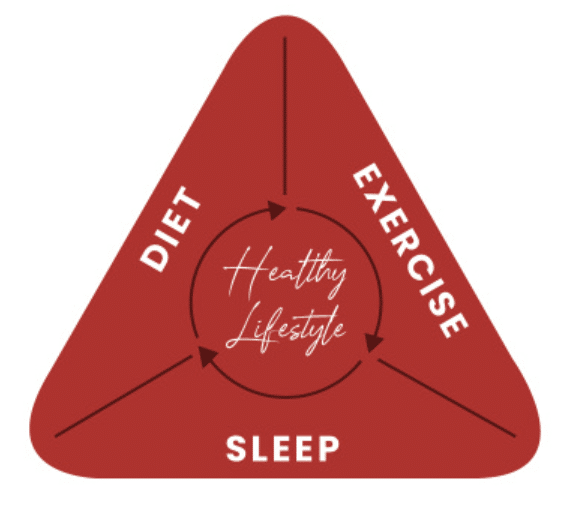When it comes to weight loss, the amount of sleep you get may be just as important as your diet and exercise. However, sleep is an often-overlooked factor that also plays a vital role during your weight loss journey. The recommended sleep duration for adults is 7 to 9 hours a night — but 35% of Americans say they sleep for less than this.
Why Is Sleep Important?

Metabolism, Appetite & Sleep
Sleep influences two essential hormones in the body. Leptin decreases appetite, so when leptin levels are high we usually feel fuller. Ghrelin can stimulate appetite and is often referred to as the “hunger hormone.”
Studies have found that less sleep increases levels of ghrelin and decreases leptin. This could increase a person’s appetite, making diets more challenging to stick to, and may make a person more likely to overeat and gain weight.
Reduced sleep may also impact food selection because the brain’s reward center is more active in response to food after sleep loss than after a full night’s rest.
Additionally, sleep duration influences your metabolism, particularly glucose (sugar) metabolism. Lack of sleep can weaken your body’s response to insulin and reduce its ability to absorb glucose. This could lead to health conditions like obesity and diabetes in the long term.
Tips for Quality Sleep During Weight Loss
Set a Sleep Schedule
Try to go to sleep and get up at the same time every day. This helps set your body’s internal clock and optimize the quality of your sleep.
Shut off Electronic Devices
Blue light from your gadgets reduces melatonin levels. Melatonin helps you drift off to sleep, so power down your devices at least 30 minutes before bedtime to keep those melatonin levels higher and get your best rest.
Reduce Stress
Chronic stress may lead to poor sleep and weight gain, such as eating to cope with negative emotions.
Limit Your Caffeine
The recommended cut-off time for caffeine use is three to seven hours before bedtime. Caffeine can cause sleep disruptions, making it harder to fall asleep at night. Instead, mix some Natural Vitality CALM® Magnesium Powder into a cup of warm water to help you drift off.
Sleep plays an important role in weight loss. Explore additional behaviors you can incorporate into your routine to build a successful weight loss routine.


















